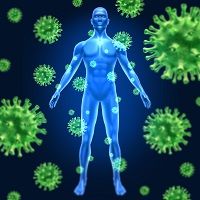Article
Sleep Longer to Fight Deadly Pathogens
Author(s):
Failing to get a sufficient amount of sleep every night can result in weight gain, depleted mental health, and increased risk of stroke, among other side effects. A new study suggests that another reason to catch enough Z's is to help combat pathogens.

Failing to get a sufficient amount of sleep every night can result in weight gain, depleted mental health, and increased risk of stroke, among other side effects. A new study suggests that another reason to catch enough Z’s is to help combat pathogens.
A team of researchers explained in Trends in Neurosciences that the immune system remembers previous encounters with viruses and bacteria. It does so by forming memories in T cells using pieces from the pathogens. Based on their findings, it appears that sleep is an important factor in the immune system’s ability to carry out this process.
“While it has been known for a long time that sleep supports long-term memory formation in the psychological domain, the idea that long-term memory formation is a function of sleep effective in all organismic systems is in our view entirely new,” senior author Jan Born, from the University of Tuebingen, said in a news release.
Previous research has linked long-term memory T cells with deep slow-wave sleep following vaccination. In the latest analysis, the researchers found that the memory T cells seem to gather ‘gist information’ about the pathogens which allows them to detect new ones. They noted, however, that the T cells can identify similar but not identical types of viruses. Taking all of this information into consideration, it’s implied that deep slow-wave sleep assists with long-term memories in the T cells that fight pathogens. On the flip side, a lack of sleep can result in an increased risk of illness.
“If we didn’t sleep, then the immune system might focus on the wrong parts of the pathogen,” Born continued. “For example, many viruses can easily mutate some parts of their proteins to escape from immune responses. If too few antigen-recognizing cells (the cells that present that fragments to T cells) are available, then they might all be needed to fight off the pathogen. In addition to this, there is evidence that the hormones released during sleep benefit the crosstalk between antigen-presenting and antigen-recognizing cells, and some of these important hormones could be lacking without sleep.”
Vaccines use immunological memory in order to protect people from infectious diseases. Therefore, the memory model findings can applied in order to create effective vaccinations for conditions such as malaria, tuberculosis, and the human immunodeficiency virus (HIV).
“It is our hope that by comparing the concepts of neuronal and immunological memory, a model of immunological memory can be developed which integrates the available experimental data and serves as a helpful basis for vaccine development,” Born concluded.
Future studies in this area should focus on what information is chosen for long-term memory, according to Born, and how the immune system goes about doing so.




